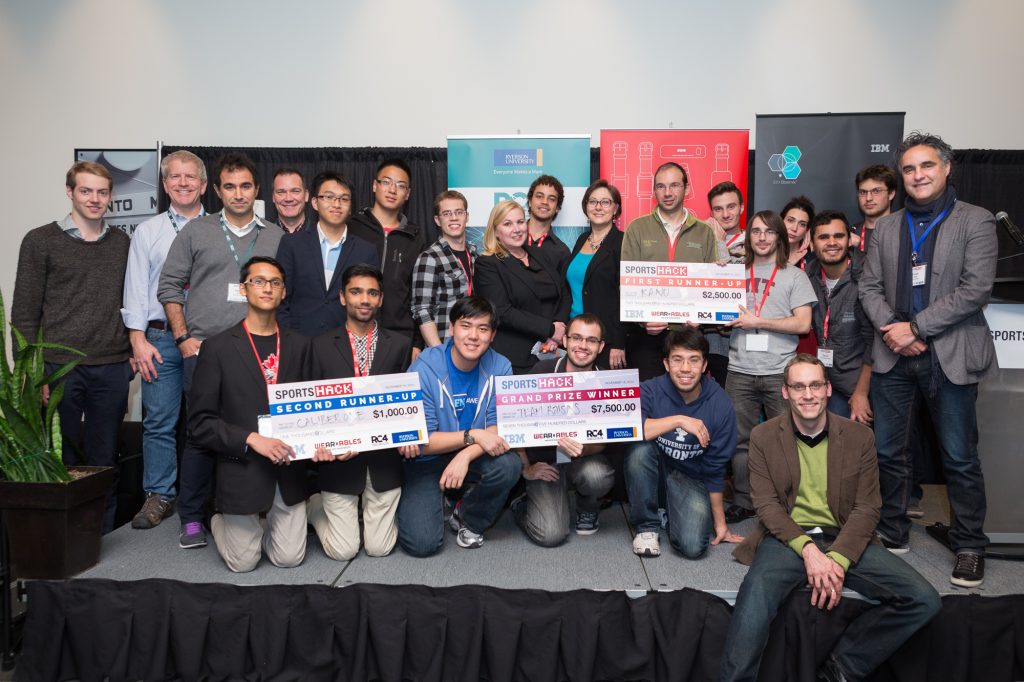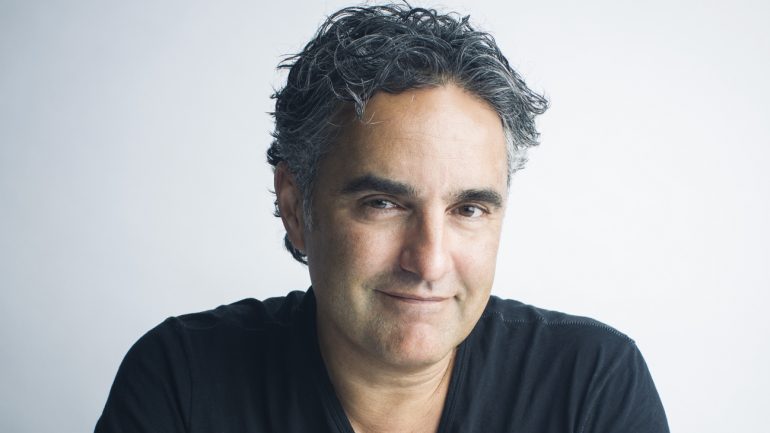Earlier this week, we had the opportunity to sit down with Bruce Croxon during SportsHack 2014 at Ryerson University. An early-stage investor and celebrity from his time on CBC’s Dragon’s Den, Croxon was on hand to not only judge the event, but provide mentorship to the young hackathon teams.
We were lucky enough to get 15 minutes with Croxon before final judging began to talk health tech and wearables, the art of the pitch, and the new generation of entrepreneurship in Canada.
We were joking before about you getting into the judging mindset, but for an event like this, can we start off by talking about the kind of things you’re looking for from a startup?
I’ve seen a lot of pitches, and I think the first thing I’ve gotten tuned into is ‘what is the addressable need?’ Because I think there are an awful lot of ideas that try and convince you there’s a problem first, and then that they’ve got the solution. I find it so much easier when the problem is definable and you have agreement that in fact it is something worth solving. Dragon’s Den taught me that there is so much stuff out there that I wouldn’t consider to be a big human need.
I’m guessing part of that is so you can spend the rest of the time identifying if that actually is the solution to the problem, right?
Especially if you’re trying to capture someone’s attention in a short period of time. The other thing is that if I have to try too hard to be convinced that it’s a problem to be solved, then the buyer of the product is going to have to work, too.
So at an event like this, most teams are not proficient or experienced at pitching. They are mostly young students who have come together for a hackathon with an idea, and are coming out with a proof of concept. How does that shift your expectations?
“One of the biggest thing that Canada has that’s untapped is that there’s now second and third-generation entrepreneurs.”
I’m not going to be peppering them with questions about market studies or use of funds, because obviously they haven’t had enough time to make that work. You’ve got to be realistic – it’s been what, 48 hours?
I think more like 36 even.
Right, right. But you still want to evaluate whether what they’ve come up with is commercially viable, and that will lead me to certain types of questions.
So in terms of the nascent sports fitness space, do you think those products and ideas that are commercially viable are readily apparent or –
– Yes.
Yes?
Yes, totally. One guy I remembered paying attention to in school was that guy named Maslow and his hierarchy of needs. Once you have food in your tummy, and a roof over your head, and a mate –
– Sports follows right after? [Laughs]
Well, it’s more health and fitness. None of anything that would follow is any good if you’re not healthy. I would argue that health is pretty germane, and we’re at the point where society is rich enough now that we can start to focus on it.
For me personally, I know that I’ve been getting much more into wearables through health – it seems to be the only use case I can really grasp onto. Because I want to know more about how I can be a better me. Is that an established problem to solve?
I think it’s huge. I mean, we’re all narcissistic to a certain extent, and as I said, if you’re not healthy nothing else really matters. These are just tools that make sense – instead of leafing through a manual, you’re getting real-time feedback.

We’re sitting in what used to be Maple Leaf Gardens, what is now part of Ryerson University. I’m wondering how you feel about the level of integration and participation between these universities looking to foster tech innovation in Canada.
The thing that I think incubators in universities have in common is that they get practical in a hurry. You have a lab here that you can test and get feedback, test and get feedback. It’s kind of like real life versus sitting in a university class talking about 18th Century philosophy. It’s a very different approach and I happen to favour the former.
And the price of technology has come down so much that we’re able to set these places up for a fraction of the cost if we were comparing it to say 20 years ago – it would be like two floors of mainframes.
Do you think it’s about simply setting up the practical environment or is there also a mentorship aspect involved?
“Typically with Canada what we do is wait until the run is almost over and pile the capital in.”
Yeah. I think one of the biggest thing that Canada has that’s untapped is that there’s now second and third-generation entrepreneurs – guys and girls that have built companies and sold them more than once. So we’re starting to come of age. If you can combine the energy of the students and the hunger with the experience of the entrepreneurs, it becomes the perfect place for it.
I see your point about second or third-generation entrepreneurs, but a lot of the teams here at SportsHack are literally kids. I’m wondering if you see any difference in how this new generation of young people are coming to university maybe not the expectation of entrepreneurship as their obvious course of action, but at least being a very option.
I think it is very different than when I was in school in the early eighties. First, you didn’t have the history of ‘been-there-done-that’ tech entrepreneurs, and second, if you did have it, word didn’t travel like it does today. Today, it’s impossible for anything to happen without it hitting the news through you guys. You’d have to be living in a cave to not have an idea of what’s going on if your interest is in technology.
So it can be very motivating. The more you hear about it the more obtainable it seems to be. I think we’re at a point today that’s unprecedented. There are more opportunities and more optimism because of the way that good news travels.
Do you think there’s any danger with that?
Sure, that’s what bubbles are made of, right? With any situation you can get too many people piling in, and typically with Canada what we do is wait until the run is almost over and pile the capital in. That’s what we did last time, so we’ve got to avoid doing that. But there will be another cycle and another run, and I think the next 20 years will be a phenomenal time to be in technology. Either as an investor, an operator, a young entrepreneur – to me it’s where the action is going to be.


